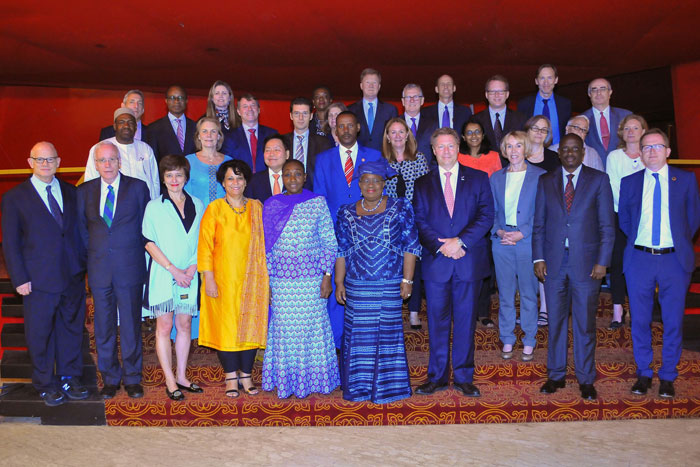07b Country Programmes Cold Chain Equipment Optimisation Platform CCEOP pdf
1
Board -2016 -Mtg -2-Doc 07b
Report to the Board
7-8 December 2016
Section A: Overview
Executive Summary
1.1 In June 2015 the Board approved the establishment of the Cold Chain
Equipment Optimisation Platform ( CCEOP ) to strengthen country cold chain
systems and to advance the Alliance?s Supply Chain Strategy .
Improvements in the cold chain are a vital building block towards delivering
vaccines more equitably and to increasing vaccine coverage , while shifting
towards m ore reliable, energy efficient, environmentally ?green?, and
sustainable equipment . Improvements in cold chain are also among the
most effective interventions the Alliance can make to mitigate risks to its
vaccine investments of over US $ 1 billion per year . In addition, the CCEOP
has contributed to promis ing market shaping developments .
1.2 The 2015 Board decision noted that an amount of US$ 50 m illion would be
allocated to launch the CCEOP and fund the initial applications in
2016 -2017 and that this would be reassessed and potentially increased
based on initial applications . Since the CCEOP was launched, 15 countries 1
have had proposals approved, recommended for approval by the
Independent Review Committee (IRC) or are under review via the Country
Engagement Process ( CEF ), totaling requests for US$147 m illion in
CCEOP support 2 from Gavi over five years. As of end November, 12
countries have been approved or recommended for approval. The total
CCEOP support requested by these 12 countries in 2017 is up to a
maximum of US$ 49.3 m illion , and US$ 133.7 m illion over five years. Eight
of these country proposals were recommended in the fourth quarter of 2016,
reflecting 68% of the requested support and the accelerating demand from
countries. Thr ee other proposals are under review via CEF with an
estimated maximum CCEOP request of US$ 6.1 m illion in 2017, and a total
from the CCEOP of US$ 12.9 m illion over five years. The Board is therefore
being asked to deci de whether to allocate additional fund ing to the Cold
1 Haiti, DRC, Uganda, Cameroon, Kenya, Niger, Madagascar, Pakistan, South Sudan, Uzbekistan,
Guinea, Liberia, Malawi, Togo, Sierra Leone 2 The total value of the proposed cold chain investments is US $ 213 million with countries? joint
investments of US $ 67 million .
SUBJECT : COUNTRY PROGRAMMES: COLD CHAIN EQUIPMENT
OPTIMISATION PLATFORM (CCEOP)
Agenda item: 07b
Category: For Decision
Authored by: Hind Khatib -Othman , Alan Brooks, Hamadou M. Dicko ,
Olamide Folorunso

